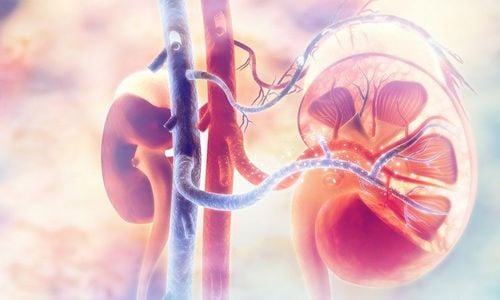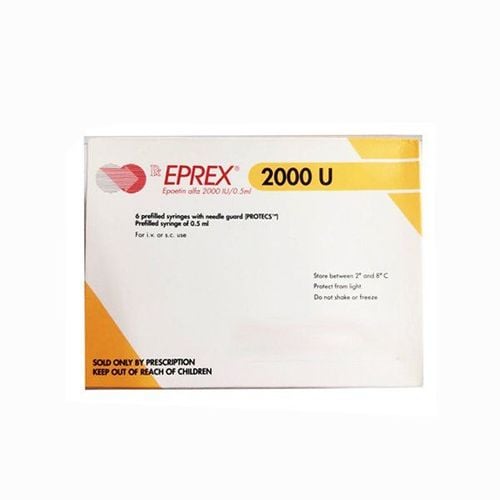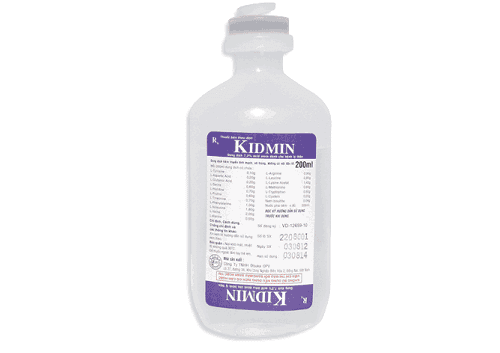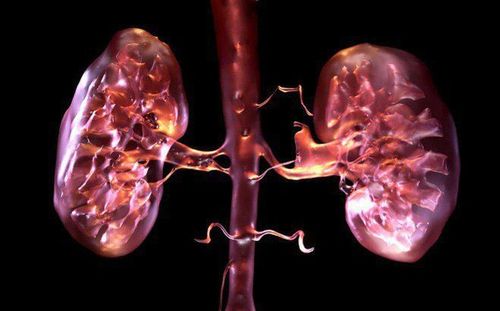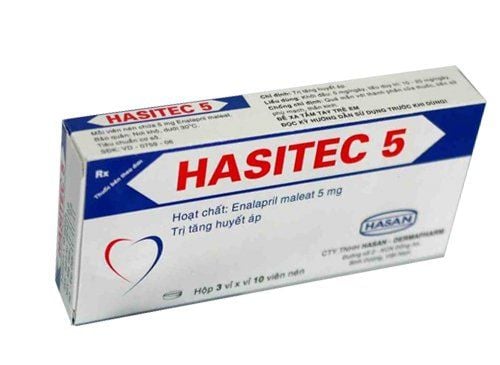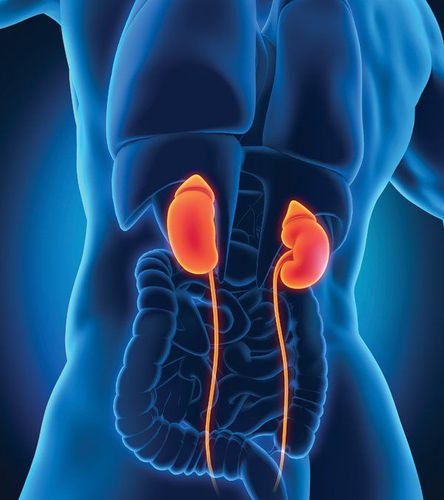This is an automatically translated article.
The glomerular filtration rate is a significant value in the assessment and grading of chronic kidney disease. The normal glomerular filtration rate is estimated based on the age of the patient, with age the glomerular filtration rate tends to decrease gradually even without any damage to the kidneys.1. What is glomerular filtration rate?
The amount of blood that is filtered through the kidneys in a unit of time (usually in minutes) is called the glomerular filtration rate. Glomerular filtration rate (GFR) is a measure of how well the kidneys filter wastes out of the blood and is the best indicator of kidney function. In addition, in clinical use, it is used to assess the degree of renal function decline and to classify the stage of chronic kidney disease.
The higher the glomerular filtration rate, the better the kidney's ability to work and eliminate waste in the blood. Over time, with age, the glomerular filtration rate also decreases and the glomerular filtration rate also varies by gender.
2. The formula for calculating glomerular filtration rate
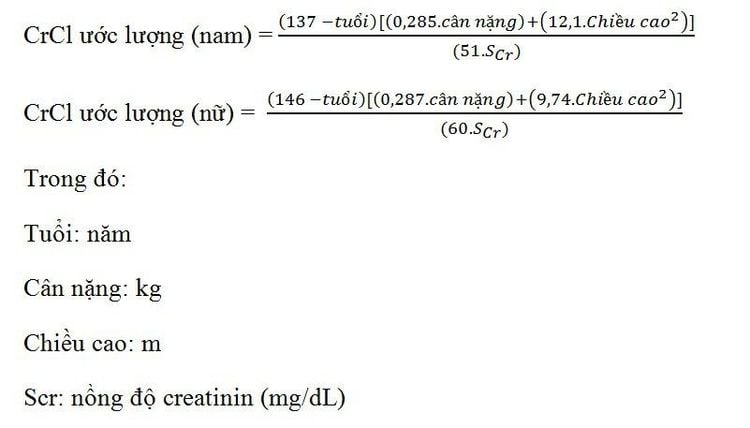
Công thức ước lượng độ thanh thải creatinin
The calculation of normal glomerular filtration rate is very difficult to be accurate, there is no means of measuring glomerular filtration rate, so a formula for calculating glomerular filtration rate is based on the creatinine in the blood. and urine.
Creatinine is a waste product produced during muscle contraction, the reason people rely on the creatinine index to estimate glomerular filtration rate because:
Creatinine has a small molecular weight, so it is easily filtered through the glomerulus. Reabsorbed by the renal tubules, the distal tubule secretes a negligible amount. Creatinine clearance is almost equivalent to glomerular filtration rate. It is easily quantified by biochemical tests. From that, a number of formulas are given to calculate glomerular filtration rate as follows:
Formula 1: Based on age , sex and blood creatinine concentration to calculate the estimated glomerular filtration rate
eGFR (ml/min/1.73m2)= 186.SCr-1,154.Age-0.203.(0.742 if female)
In which:
eGFR(estimated GFR) is the estimated glomerular filtration rate SCr: blood creatinine concentration Formula 2: Estimate the glomerular filtration rate equivalent to creatinine clearance based on the creatinine in blood and urine.
Conduct a 24-hour urine collection, to measure the urine volume and the amount of creatinine excreted in 24 hours, and at the same time measure blood creatinine
GFR = CrCl (mL/min) = (urine UCr.V)/(SCr.T) ).
Where:
CrCl: creatinine clearance Ucr: urine creatinine concentration (mg/dL) urine V: urine collection volume (mL) SCr: blood creatinine concentration collected at baseline between time to collect urine (mg/dL) T: Time to collect urine (in minutes) Formula 3: Since the calculation of creatinine clearance is also difficult, there are many steps, so the possibility error reporting. Therefore, researchers have developed methods to estimate creatinine clearance from serum creatinine values and other characteristics of patients of different ages, sexes and regions of life.
The most commonly used formula for adults aged 18 years and over:
Male: CrCl = [(140 – age).weight]/(72.SCr) Female: CrCl = [(140 – age).weight]/(72.SCr).0.85 In which:
Estimated CrCl: estimated creatinine clearance (mL/min) Age: In years Weight: In kg SCr: creatinine concentration in serum (mg/dL)
3. How much glomerular filtration rate is normal?
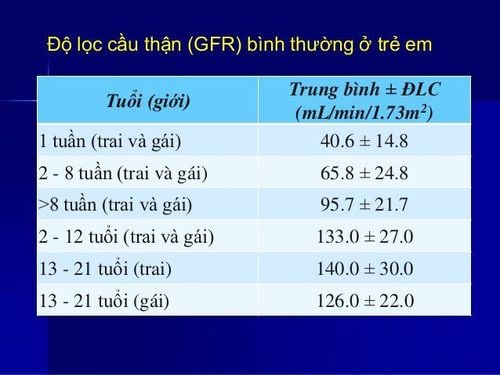
Độ lọc cầu thận bình thường ở trẻ
Normal glomerular filtration rate in healthy adults is above 90 mL/min/1.73 m2. Glomerular filtration rate decreases with age, even in people without chronic kidney disease.
Normal glomerular filtration rate based on age is as follows:
From 20-29 years old, about 116 mL/min/1.73 m2. From 30-39 years old, about 107 mL/min/1.73 m2. 40-49 years old over 99 mL/min/1.73 m2. 50-59 years old over 93 mL/min/1.73 m2. From 60-69 years old over 85 mL/min/1.73 m2. From over 70 years old over 75 mL/min/1.73 m2. From the glomerular filtration rate, one can assess the kidney's filtering function, the stage of chronic kidney disease, thereby giving appropriate care and treatment measures. Subjects at high risk of kidney disease such as diabetes, hypertension or suspected symptoms caused by kidney disease should check glomerular filtration rate for early diagnosis and early monitoring of the disease. .
Please dial HOTLINE for more information or register for an appointment HERE. Download MyVinmec app to make appointments faster and to manage your bookings easily.




